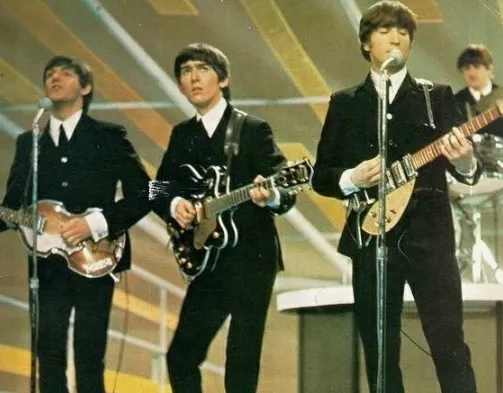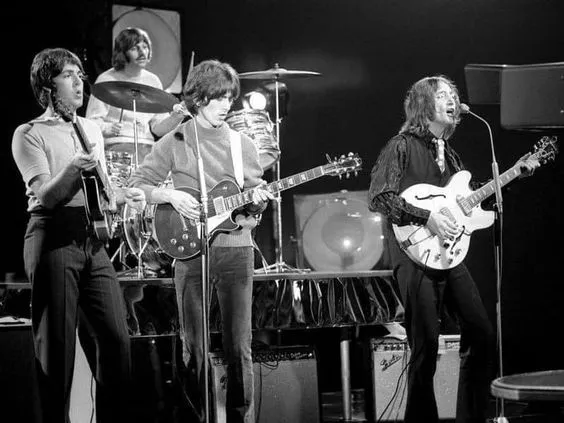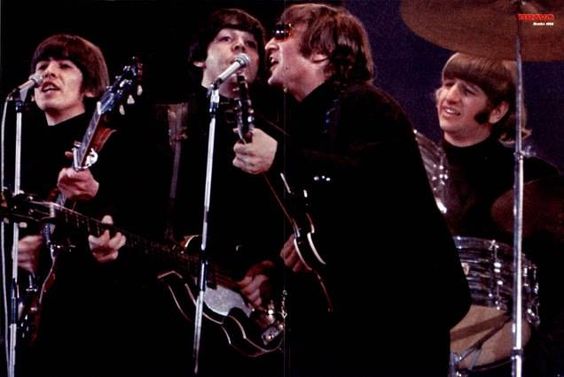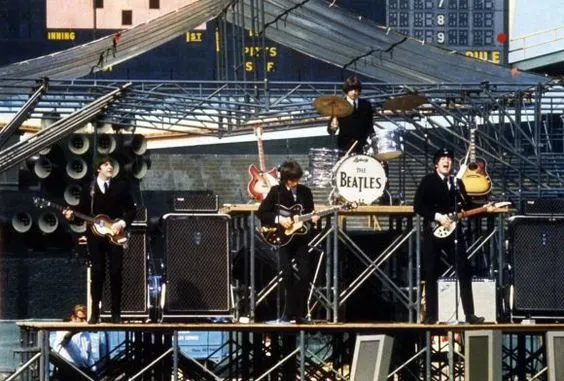In February 1964, an extraordinary encounter took place in Miami Beach, Florida: The Beatles, the world's most famous band, met Muhammad Ali, then known as Cassius Clay, who was on the cusp of becoming the world heavyweight boxing champion. This meeting brought together two of the most iconic figures of the 20th century, capturing a moment that highlighted the cultural and social shifts of the 1960s.
.jpg)
The Beatles, consisting of John Lennon, Paul McCartney, George Harrison, and Ringo Starr, were in Miami to appear on "The Ed Sullivan Show" and to enjoy some respite from the cold British winter. Their arrival in America marked the beginning of Beatlemania, a phenomenon of unprecedented global adoration and frenzy. Their youthful energy, charm, and groundbreaking music had already begun to reshape popular culture.
.jpg)
Muhammad Ali, born Cassius Clay, was in Miami training for his title bout against the reigning heavyweight champion, Sonny Liston. Ali, only 22 years old at the time, was known for his brash confidence, quick wit, and unorthodox fighting style. He was already making waves not just in the boxing world but also in the broader cultural landscape with his outspoken personality and charismatic presence.
.jpg)
The meeting was orchestrated as a publicity stunt by Harold Conrad, a publicist who worked for the promoter of the fight. Conrad saw the opportunity to bring together these young sensations for mutual benefit: the Beatles could gain more exposure in the U.S., and Ali could capitalize on the band's skyrocketing popularity to generate more buzz for his upcoming fight.
.jpg)
The encounter took place at the 5th Street Gym in Miami Beach. The Beatles, clad in white terrycloth bathrobes emblazoned with their names, arrived first. Initially, they were unimpressed with the idea of meeting a boxer, not fully aware of Ali's burgeoning status. However, their attitudes quickly changed when Ali made his grand entrance. Tall, handsome, and exuding confidence, Ali immediately took control of the situation.
.jpg)
Ali's charisma shone through as he joked and playfully taunted the Beatles, calling them "little sissies" and pretending to knock them out with his powerful fists. The Beatles, in turn, played along with the farcical sparring, resulting in a series of iconic photographs that captured the playful spirit of the meeting. One famous shot shows Ali with his fist cocked as if to punch, while the Beatles mockingly recoil in exaggerated terror.
.jpg)
This moment was not just a convergence of two entertainment powerhouses; it was symbolic of the broader cultural transformations happening in the 1960s. Both the Beatles and Ali represented the burgeoning youth culture that was challenging traditional norms and conventions. The Beatles' music and style were pushing the boundaries of what was acceptable in mainstream media, while Ali's outspokenness and refusal to conform to the expectations of a black athlete were equally revolutionary.
The meeting also highlighted the role of media in shaping public personas and creating myths. The Beatles and Ali were both masters of self-promotion and understood the power of media in constructing their public images. This understanding helped them navigate and dominate their respective fields, leaving an indelible mark on popular culture.
.jpg)
After their brief encounter, the Beatles continued their American tour, solidifying their place as cultural icons. Ali went on to defeat Sonny Liston in one of the biggest upsets in boxing history, further cementing his status as a legendary figure in sports and beyond.
In retrospect, the meeting between the Beatles and Muhammad Ali stands out as a snapshot of a unique moment in time when the worlds of music, sports, and media converged in a way that would shape the future of global pop culture. It was a harbinger of the increasing interplay between different entertainment sectors and the growing influence of celebrity culture.
The images from that day in 1964 remain etched in the public consciousness, symbolizing a period of tremendous change and the coming together of revolutionary forces. The Beatles and Muhammad Ali, each in their own way, broke barriers and redefined what it meant to be a global superstar. Their meeting was not just a fleeting encounter but a defining moment that captured the spirit of an era.



